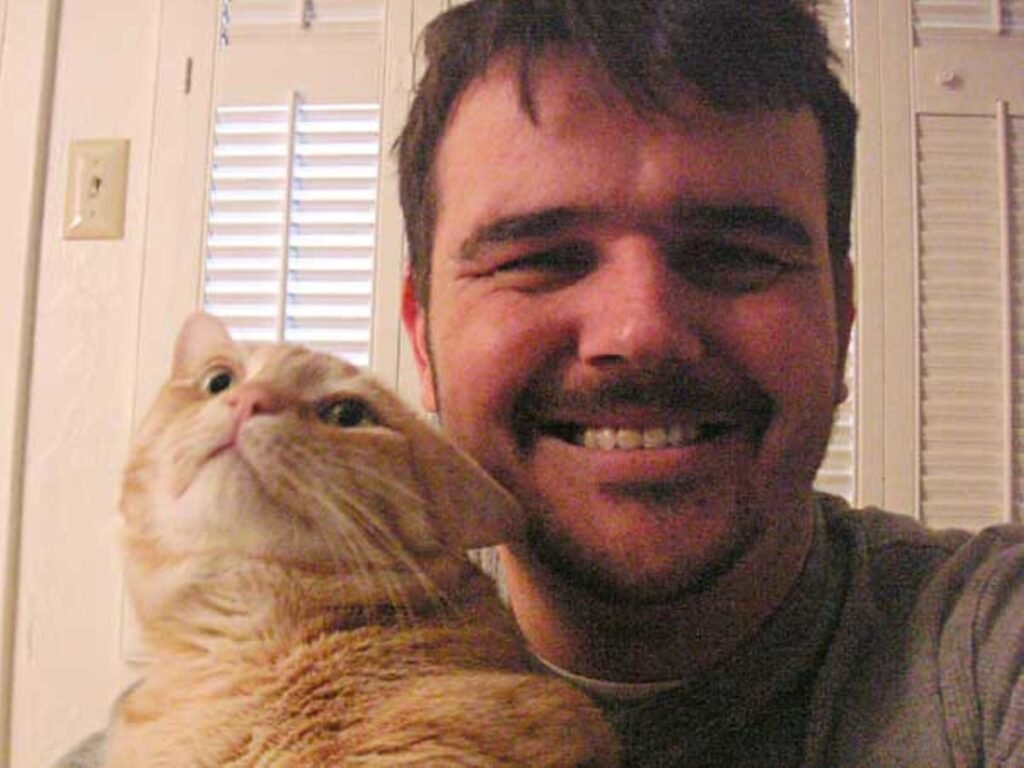Have you ever wondered why your feline companion seems magnetically drawn to the moment you walk through the door? That warm, fuzzy feeling you get when your cat weaves between isn’t just adorable – it’s actually a complex form of communication that reveals fascinating insights into feline behavior. This endearing gesture, known as “bunting,” is more than just a cute quirk – it’s a complex form of feline expression that serves multiple purposes in your cat’s social and emotional world.
Your cat’s leg-rubbing ritual is one of the most misunderstood yet meaningful behaviors in the animal kingdom. While you might interpret this as simple affection or a request for attention, the truth is far more intricate and remarkable. Let’s dive into the captivating world of feline communication and discover exactly what your cat is trying to tell you when they perform this endearing daily dance.
The Science Behind Scent Communication

When your cat rubs against your legs, they’re engaging in one of nature’s most sophisticated communication systems. Cats have scent glands on their cheeks, chin, top of their head, and base of their tail. These scent glands contain pheromones. These invisible chemical messengers carry detailed information that’s completely undetectable to human noses but crystal clear to other cats.
Unlike people who only have 6 million odor sensors, cats have over 200 million! This remarkable sensory advantage allows them to gather and interpret information through scent in ways we can barely comprehend. The behavior of rubbing releases pheromones, which are a kind of chemical communication to claim their territory, marking objects and people as familiar.
Marking Territory and Claiming You

When they rub their body up against you, it’s their way of marking their territory and depositing their unique scent onto your clothes. This is their way of telling other cats that you belong to them! Think of it as your cat’s version of putting a “property of” sticker on you, though it’s far more nuanced than simple ownership.
Cats are territorial creatures and will claim their pet parents as part of their territory. So not only is rubbing against you a sign of a happy “hello” or “welcome home,” but cats also want to make sure that they have marked you with their scent. This behavior creates what experts call a “colony odor” that helps your cat feel secure and establishes you as a trusted member of their social group.
Expressing Affection and Social Bonding

Most of the time, a cat rubbing their head or body against your leg is a very good sign. This is often a sign of greeting, meaning your cat is happy to see you. Greeting you is the most common reason for a cat rubbing against your legs. They usually do this when they’re happy to see you and you may notice it more when you’ve been gone for a while.
This behavior represents one of the purest forms of feline affection you can receive. While there are territorial reasons for cats rubbing against your legs, and they are often attempting to get information, it is predominantly a sign of affection and acceptance. When your cat rubs up against you, they mark you as a part of their social group, and you can feel proud to be a member!
Gathering Information About Your Day

Your cat may be depositing scent on you at the same time that they’re gathering any new scents you picked up. Your legs are like a scent newspaper that tells your cat exactly where you’ve been and what you’ve encountered during their absence.
One reason cats rub against the legs of a new person or guest is to gain scent communication about them. Our feline friends learn a lot from these smells – does the new person have pets? Did they walk through interesting territory? Who are they? If you suddenly have a different smell, like that of a friend’s pet or after working in the garden, your cat may rub to replace that scent with their own familiar scent.
Seeking Attention and Resources

But there’s another reason , and it’s a learned behavior, rather than an instinctual one. “Many cats learn they can get your attention by rubbing on you, so it’s not unusual for cats to do this when they want something, like dinner.” Your clever cat has figured out that this particular behavior is nearly impossible for you to ignore.
A cat may rub against you to let you know that they want something. If they are hungry, they might rub against you to remind you that it is dinner time. They may also just do this when they want some sort of attention, whether they want to play or just want you to rub them back. You might find that they rub on your legs when they are welcoming you or when they’re hungry. We’ve all tripped over our cats as they weave through our legs, begging for food or scratches with loud meows.
When to Be Concerned About Excessive Rubbing

As a rule, rubbing is a normal behavior in cats and not indicative of a health problem. However, if the rubbing is completely out of character for your cat or if it becomes excessive, it could be a sign of a medical problem. Sometimes cats will aggressively rub against us to signal that something is wrong. This could be illness, or perhaps it’s a gentle reminder to clean out their litter box or that they want to play with you. That’s why it’s important to monitor and learn your cat’s behavior so you can recognize changes and understand when they need something from you.
If the rubbing behavior seems obsessive, as if your cat must do it, and it’s very hard to distract them, it could be related to anxiety. There may be a specific trigger causing stress that you can remove or work on. Pay attention to your cat’s overall demeanor during these episodes – stressed cats may seem tense rather than relaxed and content.
The next time your cat performs their daily leg-rubbing ritual, you’ll understand that you’re witnessing something truly remarkable. This simple gesture represents millions of years of evolutionary communication, a declaration of love, and a sophisticated information-gathering mission all rolled into one adorable package. Your cat isn’t just being cute – they’re engaging in one of nature’s most complex and meaningful social behaviors.
What do you think about your cat’s secret communication system? Tell us in the comments how your feline friend shows their affection for you!





